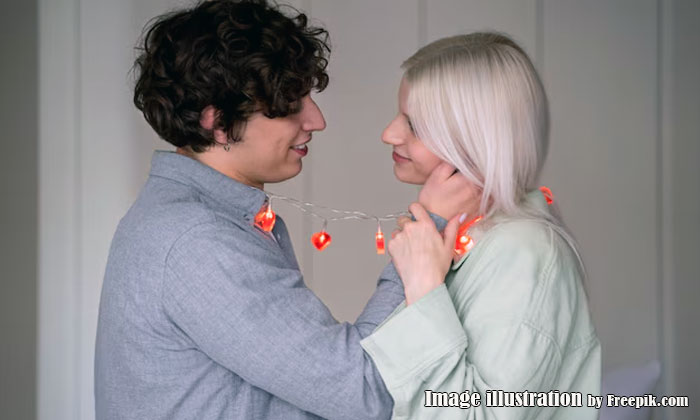
In any relationship, whether it’s romantic or otherwise, balancing individuality and togetherness is essential for maintaining a healthy and fulfilling connection. While intimacy and closeness are important, it’s also necessary to maintain a sense of self, personal freedom, and independence. Striking this balance can sometimes feel challenging, especially in long-term relationships, but when achieved, it creates a harmonious dynamic that strengthens both the bond and the personal growth of both individuals involved.
In this article, we’ll explore the importance of balancing individuality and togetherness, along with practical ways to navigate this balance and cultivate a thriving relationship.
1. Why Balancing Individuality and Togetherness is Important
In any partnership, the need for emotional intimacy, shared experiences, and companionship is essential. However, maintaining a strong sense of individuality also plays a crucial role in personal fulfillment, happiness, and mental well-being. When one partner loses sight of their own identity or interests in favor of the relationship, it can lead to resentment, dependence, or feelings of suffocation.
On the flip side, too much focus on personal freedom and autonomy, with little effort on nurturing the relationship, can result in emotional distance and disconnection. A healthy relationship thrives when both partners can pursue their individual passions and goals while also growing and evolving together.
The benefits of balancing individuality and togetherness:
- Personal growth: Both partners can continue to develop as individuals while fostering growth as a couple.
- Mutual respect: Respecting each other’s individuality promotes a deeper appreciation and acceptance of one another.
- Reduced dependency: A balanced relationship prevents unhealthy codependency, where one partner’s happiness is entirely reliant on the other.
- Stronger connection: Couples who honor each other’s space and time can form a deeper emotional bond based on mutual understanding and trust.
2. Understand and Respect Each Other’s Need for Space
One of the key aspects of maintaining individuality in a relationship is recognizing that both partners have different needs for personal space. Some individuals require more alone time to recharge, reflect, or engage in personal activities, while others may seek more togetherness and interaction.
Tips for respecting each other’s need for space:
- Communicate openly: Discuss your need for space and personal time openly with your partner. Express how important it is for your personal well-being without making the other feel rejected or unimportant.
- Respect personal time: Allow your partner to pursue their own hobbies, interests, and activities outside of the relationship. This helps maintain their sense of individuality and reduces the pressure to spend every moment together.
- Balance quality time with personal time: Make sure that both partners are investing time in the relationship, but also feel comfortable with their own pursuits.
By understanding and respecting each other’s need for space, both partners can continue to develop as individuals while nurturing the bond they share.
3. Support Each Other’s Personal Goals and Passions
In a relationship, both partners should feel encouraged to pursue their personal goals and passions, whether related to their careers, hobbies, or personal development. A healthy relationship allows each person to thrive individually without diminishing the importance of the partnership. When both partners support each other’s ambitions, it strengthens the bond and allows each person to bring their best self to the relationship.
How to support each other’s individual goals:
- Encourage growth: Be your partner’s cheerleader. Celebrate their successes, encourage them during setbacks, and express genuine interest in their aspirations.
- Create space for their passions: If your partner is passionate about something, such as a hobby or career, support their commitment to it by giving them the time and space they need to pursue it.
- Avoid competition: A successful relationship is not about one partner outperforming the other. Be proud of your partner’s accomplishments and show genuine happiness for their progress.
Supporting each other’s goals creates a sense of fulfillment and allows the relationship to thrive with a sense of mutual respect and admiration.
4. Maintain Separate Social Lives
While spending time together is important, it’s also valuable to maintain separate social lives. Nurturing friendships and relationships outside of the romantic partnership can enhance your sense of individuality and provide opportunities for personal growth and fun. It also prevents the relationship from becoming too insular, fostering a healthy balance between connection and independence.
Ways to maintain separate social lives:
- Spend time with friends and family: Make time to enjoy social activities with friends or family members outside of your relationship. This helps you stay connected to your support network and promotes a sense of autonomy.
- Respect your partner’s friendships: Support your partner’s desire to spend time with their friends or engage in their own social activities. Encourage them to enjoy their independent friendships without feeling threatened or left out.
- Avoid isolation: It’s important not to isolate yourself from others or cut off friendships in favor of the relationship. A strong relationship is one where both partners feel fulfilled independently as well as together.
Maintaining a rich social life outside of the romantic relationship keeps the bond fresh and allows each partner to bring diverse experiences and perspectives into the relationship.
Also read other relationship articles on Destyless:
- How to Support Your Partner During Stressful Times
- How to Build Trust After a Betrayal
- Love Languages: Understanding Your Partner’s Needs
5. Make Time for Shared Experiences and Connection
While individuality is essential, creating shared experiences and quality time together is equally important for maintaining a strong bond. Having common interests, goals, and memories fosters a deeper connection and reinforces the sense of partnership.
Ways to nurture togetherness:
- Schedule quality time: It’s easy to let the demands of daily life interfere with spending quality time together. Make it a priority to plan regular dates, vacations, or shared activities that you both enjoy.
- Pursue mutual interests: Find hobbies or activities you both enjoy and can do together, whether it’s cooking, hiking, dancing, or exploring new places.
- Express love and appreciation: Small gestures of affection, compliments, and acts of kindness reinforce the emotional connection in the relationship.
Investing in shared moments strengthens the emotional intimacy of the relationship while keeping a balance with your individuality.
6. Embrace Change and Adapt Together
As individuals evolve over time, so does the relationship. A couple’s ability to adapt to each other’s changing needs, desires, and goals is vital for maintaining a healthy balance between individuality and togetherness.
How to embrace change:
- Communicate openly about changes: As both partners evolve, be open about how your needs or desires may shift. Communicating these changes allows both individuals to grow together, rather than apart.
- Be flexible and understanding: Life circumstances, career changes, and personal growth can lead to shifts in priorities. Being adaptable and understanding will help navigate these changes without feeling threatened.
- Support each other’s growth: As you both change, encourage each other’s development. Growth in a relationship doesn’t mean drifting apart—it’s an opportunity to learn new things about each other and build a stronger bond.
Being open to change and adapting together allows you to continuously grow both individually and as a couple.
7. Respect Boundaries and Avoid Codependency
Maintaining clear and respectful boundaries is essential in balancing individuality with togetherness. Codependency, where one partner relies too heavily on the other for emotional support or validation, can be detrimental to both individuals. Boundaries ensure that each partner maintains their sense of self while also nurturing the relationship.
How to set and respect boundaries:
- Communicate boundaries clearly: Make sure both partners are clear on their individual needs, limits, and expectations in the relationship.
- Give each other freedom: Respect your partner’s personal time, space, and decisions without feeling insecure or threatened.
- Practice self-care: Both partners should focus on maintaining their own well-being, outside of the relationship, to avoid relying too heavily on each other for emotional stability.
Healthy boundaries promote emotional independence and ensure that both partners feel respected and valued as individuals within the relationship.
Conclusion: A Harmonious Balance Creates a Thriving Relationship
Balancing individuality and togetherness in a relationship is about respecting each other’s need for personal space, supporting each other’s goals, and nurturing the emotional bond. When both partners can maintain a sense of self while also growing together, they create a foundation for a stronger, more fulfilling relationship. By fostering mutual respect, communication, and understanding, you can cultivate a harmonious relationship that allows both partners to thrive both individually and as a couple.






